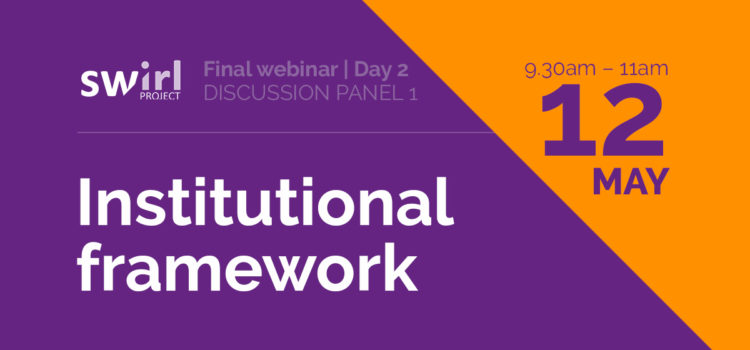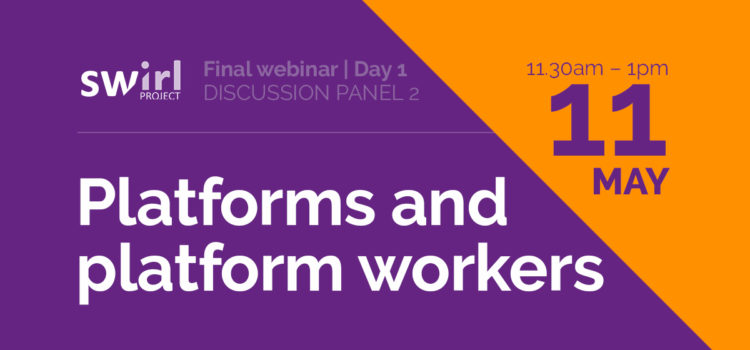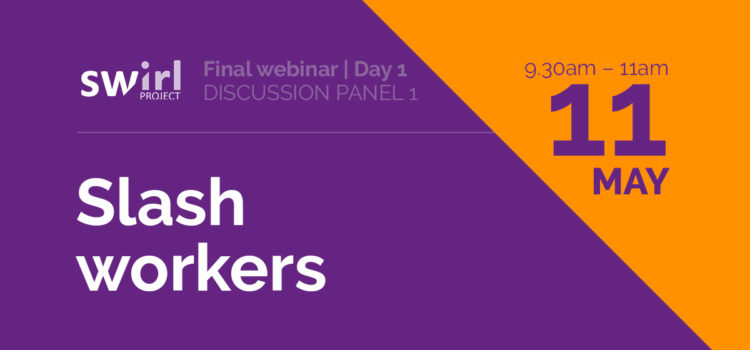Driven by passion or financial needs, over 10 million Europeans have multiple jobs in various domains. Though highly educated and skilled, they often suffer from poor working conditions and represent a major challenge for institutions and traditional representation systems
Sabrina is an Italian graphic designer, an editorial project manager and a graphologist. She is one of the European “slash workers”: self-employed professionals who put a slash between their multiple jobs in different sectors. They are often highly skilled and educated workers, and women.
“I have a degree in cinema and after working several years in a big broadcasting company in Rome, I was dismissed,” says Sabrina. “I then took the chance of freelancing as a designer, to diversify my professional activities and focus on my passions and creativity skills. But I was still not earning enough, so in 2016 I obtained a degree in graphology and started working as a graphologist expert for courts and law firms as well.”
As some of Sabrina’s professional activities are highly dependent on art exhibitions and fairs, her work has dwindled during the Covid-19 crisis. “Nevertheless, I consider myself lucky,” she says. “Working as a graphologist has been my safety net.”
The European project Swirl studied the trends of slash work in the years 2011-2019, before the pandemic. However, its principal investigator Ivana Pais, Associate Professor in Sociology at the “Università Cattolica del Sacro Cuore” in Milan, confirms that Sabrina’s case is far from being isolated.
“Having two or more jobs during the pandemic crisis has been a factor of both protection and fragility. A factor of protection because those who have lost a job have been able to rely to their other jobs. And a factor of fragility because by carrying out just a few hours in each activity, in some cases, these workers have not reached the minimum threshold for social protection.” Compared to multiple-job holders of the last century, she adds, “slash workers have a higher level of education and better qualifications, but worse working conditions.”
Due to the broad range of their activities, slashers express very different needs which cannot be easily put into common positions in terms of social protection or collective representation.
Sofía Pérez de Guzmán Padrón, coordinator of the project’s Spanish team and Associate Professor at the General Economy department of the University of Cádiz, says that in over 100 in-depth interviews conducted under Swirl, “the answers suggest that slash workers tend to consider their multiple activities as watertight compartments, with their own dynamics and requirements.” Such a perception contributes to fragilising these workers as a whole category and fuels the demand for new forms of representation.
On the one hand, a vast majority of this workforce identifies traditional unions as actors only representing employees. On the other, the unions struggle to help these flexible workers. “We obviously respond to their needs on all platforms,” says Ruben Ranz Martin, coordinator of the initiative Tu Respuesta Sindical Ya! at the Spanish General Union of Workers (UGT). “But to be more effective, we first ask slash workers to list all of their activities and then to choose the main one.”
Thanks to its active collaboration with grassroots associations, Tu Respuesta Sindical Ya! played a key role in setting up the local trade unions sections of Glovo and Deliveroo and in the approval of the Spanish “Riders Law”. This law, introduced in May 2021, recognises food-delivery riders from digital platforms as employees and not as self-employed workers.
Riders were among the first slashers to join the free-lancers cooperative Smart. Founded in Belgium and now active in seven other EU countries, it has developed a model to meet the diversity of needs of these atypical workers and to adapt to the diversity of national legislations. The cooperative employs them and issues invoices on their behalf, giving them safer working conditions.
Nonetheless, co-CEO Maxime Dechesne is convinced that a lot more has to be done at the institutional level. “We have to stop creating new business statuses such as the ‘auto-entrepreneurs’ in France and the ‘mini-jobs’ in Germany. At first, they might seem attractive for slashers, because they can legally issue invoices and pocket more net income. But this status offers no protection and – in the long term – it is disastrous, both for workers and for society as a whole.”
Sabrina is now about to pack her suitcase. She has a flat in Berlin, and every year she spends several months there. “I love the city and the creative community is very dynamic, but working in two different countries is not easy. I have to cope with different regulation systems and sometimes it’s a real struggle.”
“Our main recommendation is an urgent action at the European Union level,” says Vassil Kirov, coordinator of the Bulgarian team of the Swirl project and Associate Professor at the Institute of Philosophy and Sociology of the Bulgarian Academy of Sciences. He explains that the EU should set out a clear definition of an employee or a self-employed person, support unions, harmonise national legislations, and give labour courts some context for their decisions on workers’ protections.
In the meantime, practical help for the slashers may come from SURE, the EU’s new financial assistance instrument targeting short-time work schemes. Aimed at countering the effects of the pandemic on the labour market, it consists of loans up to €100 billion to member states.
By Diego Giuliani




